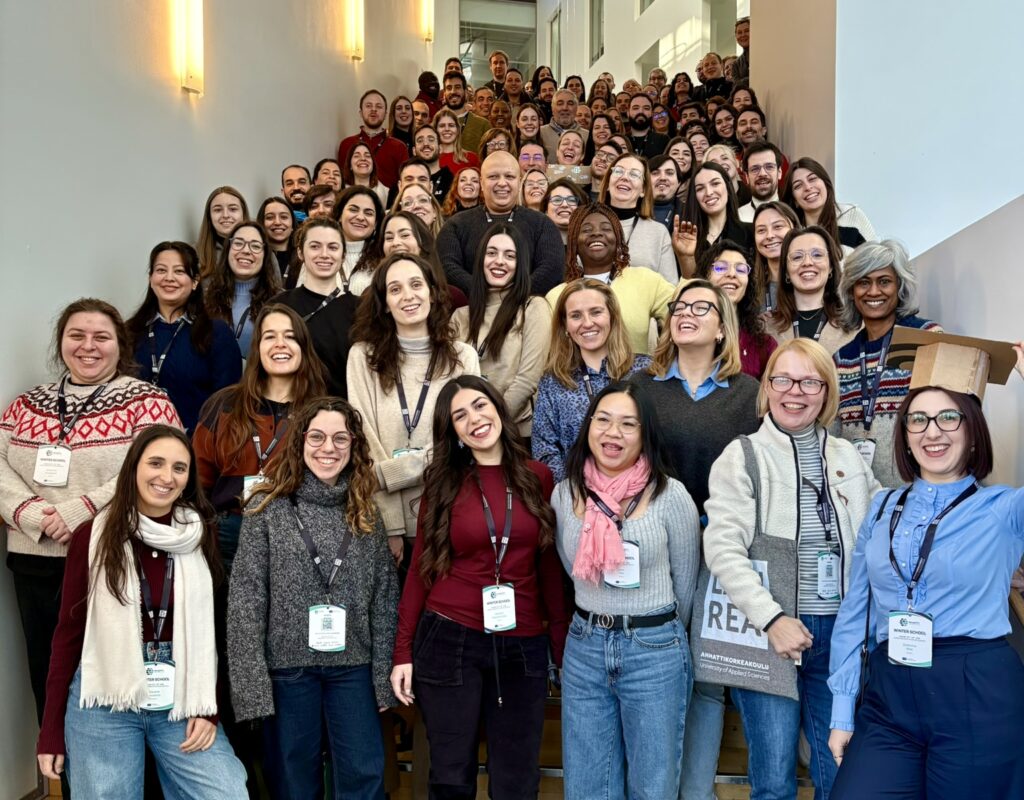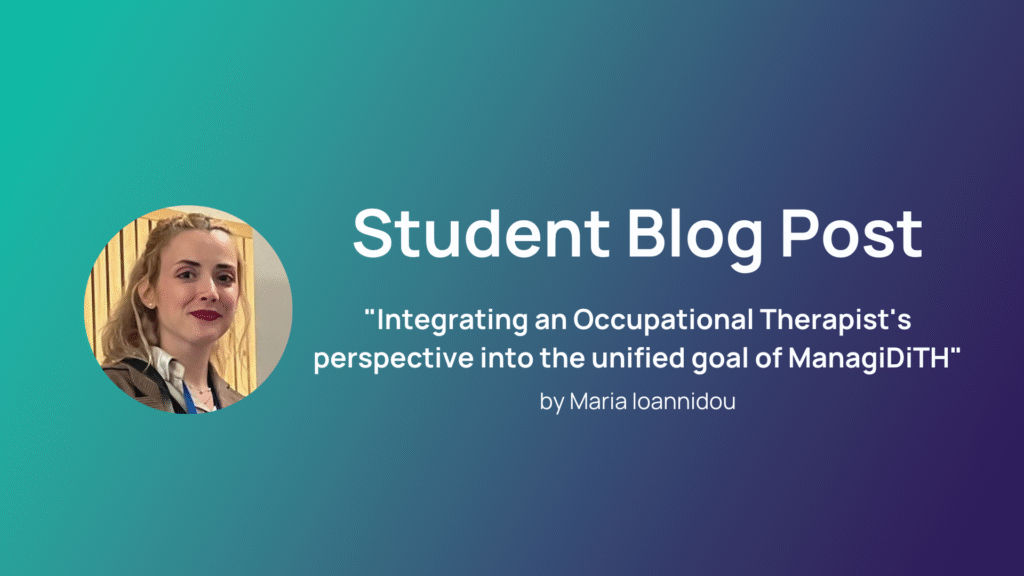What is it like to study in a multicultural, even multidisciplinary Master´s degree programme, where you have professionals’ side by side? Starting the journey among the very first students, engineer Mrugesh Chauhan shares his key moments.
Three Universities, 150 Students, One impact
“It is the margin that holds the page.” – Jean-Luc Godard
To keep it personal, I have refrained from using jargon served by one of the AI LLM (artificial intelligence large language) models in vogue. Recently, these AI machines have been competing to grab my attention, but our attention should not be cheap, not in healthcare domain which cannot afford oversight. Yet in such times of a thousand distractions ManagiDiTH (Managing Digital Transformation in the Health Sector) is consistently holding my attention.
Vital subjects, rich profile of students
In any Master’s programme of this level, the subjects are certainly of vital importance, however, the uniquely fascinating aspect of the course is the richness of the profile of students: doctors, nurses, other Health Care Professionals (HCPs), scientists, engineers, gynecologist, psychiatrists, from different European countries, all under one digital roof learning this hot topic, Digital Transformation. Each one wants to change something. A nurse in Finland is facing a different challenge than a nurse in Portugal, a doctor in Greece has different expectations from the digital transformation than a doctor in Germany, and so on. This coming together of different expectations has broadened the spectrum of my own perspectives about the Digital Transformation requirements.
It has been 14 years since I have been in this field. I can confidently claim that the years of diligently working with healthcare professionals has made our company the best out there in Home Healthcare in France. I believe that, as far as digital transformation in healthcare is concerned, the patient is not at the center, but the healthcare professionals are, serving multiple patients in their periphery. This felt like a blasphemous thought, but not anymore after the first semester in ManagiDiTH which gives equal importance to HCPs as well. The efficacity of healthcare delivery cannot be promised otherwise.
Challenging yet rewarding
A Master’s programme coordinated by three universities in three different countries with their own methodologies is culturally rich, but a gigantic challenge that requires adaptation from professors as well as the students. The teaching staff have been understanding, using all their means to be flexible with the students. One of the professors gave us a structured summary of every GPT model to be used for different purposes in healthcare. I had assumed that AI must not be used in academics, instead he advised us to use it intelligently as a tool to research, gather and structure information, to learn and build upon it. To generate synthetic data, for example. Another course added an ethical perspective to it, another prompted us to critically analyze the healthcare policies using World Health Organization (WHO) frameworks, such as TAPIC (a practical problem-oriented analytical tool). Some of these policies had a direct impact on our own products.
The last topic of this semester dealt with the ‘silent pandemic’ that is AMR (Antimicrobial Resistance) that could become one of the biggest causes of deaths by 2050. Now that makes me think farther ahead than I had so far.
It would not be an exaggeration to believe that ManagiDiTH may become the margin that will hold the page of the future of Digital Transformation of European Healthcare.

Mrugesh Chauhan
Mrugesh Chauhan is an engineer at MHComm, also its cofounder, with a will and resources to create a harmonized model of Home Healthcare that can be deployed with ease anywhere in Europe. He is a ManagiDiTH (Managing Digital Transformation in the Health Sector) Master´s Programme student.




